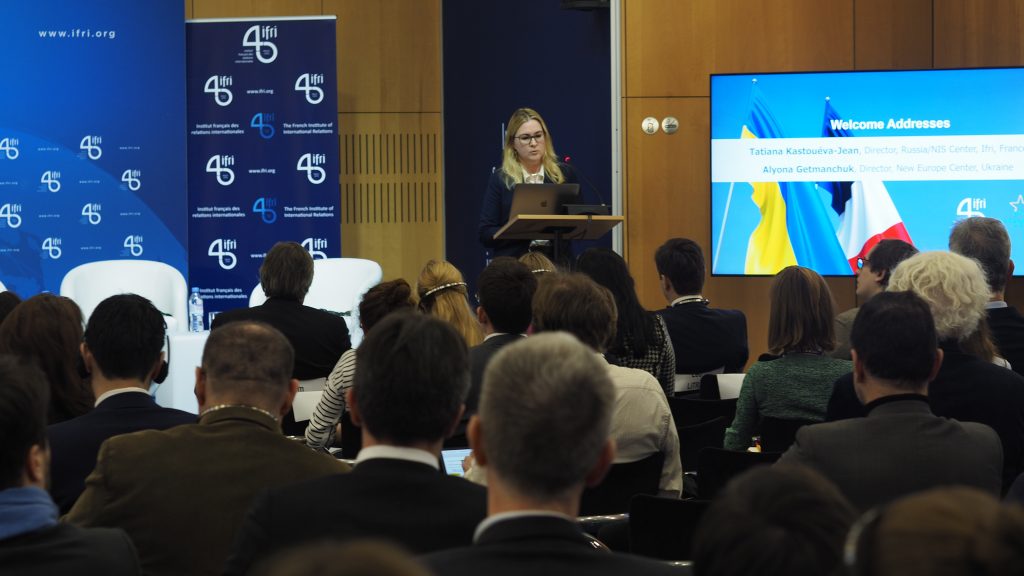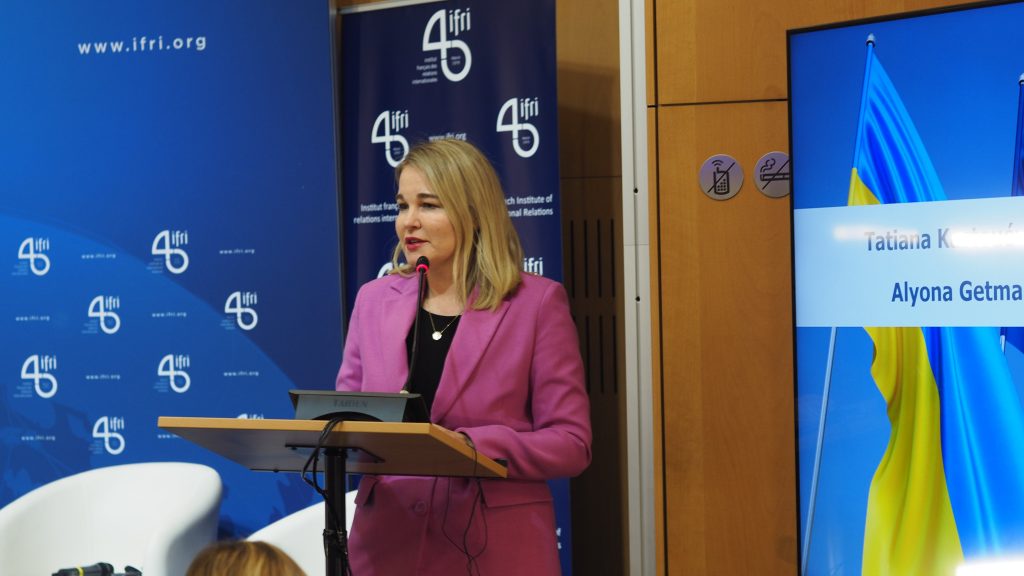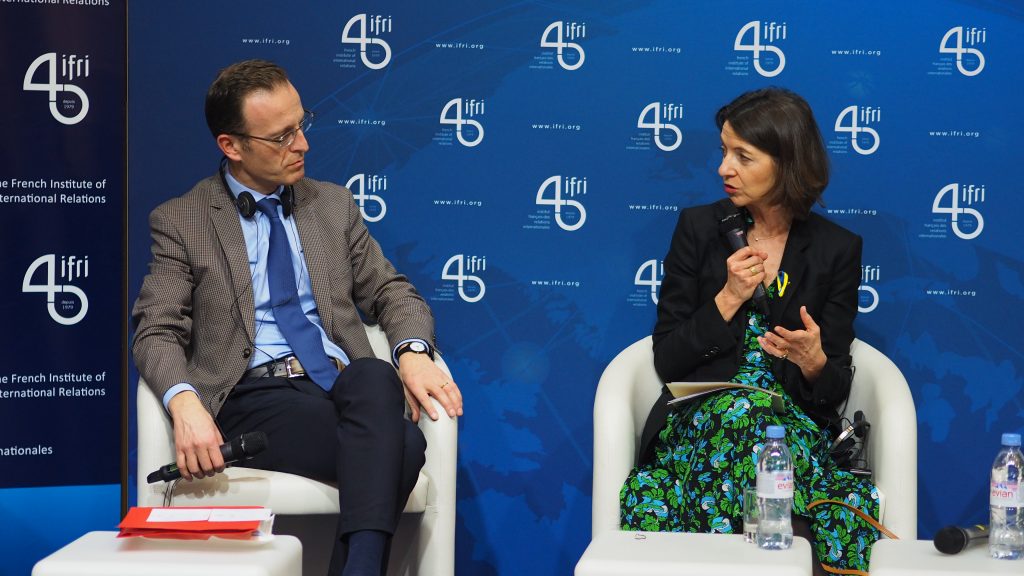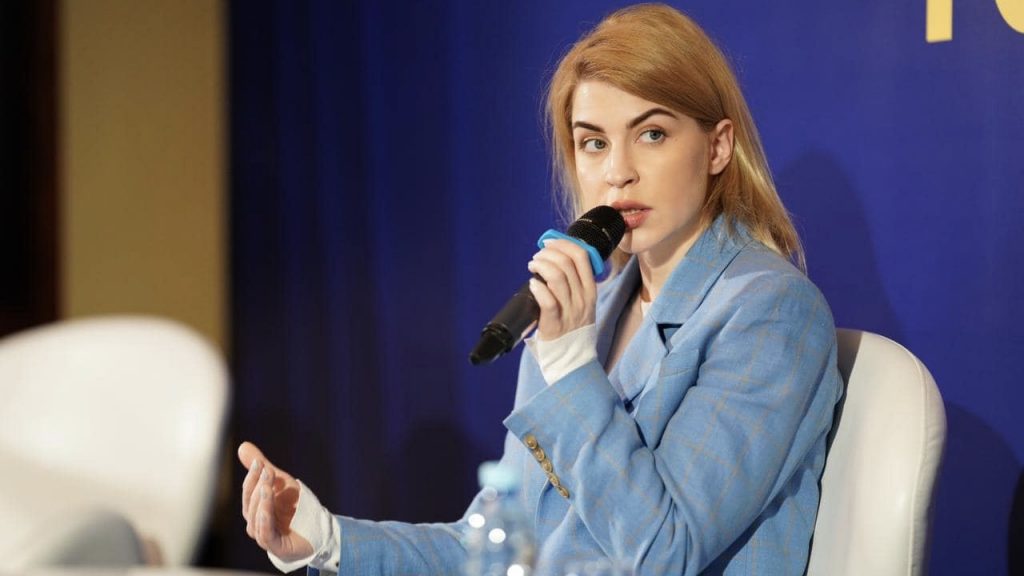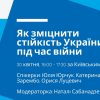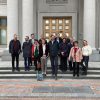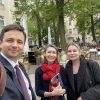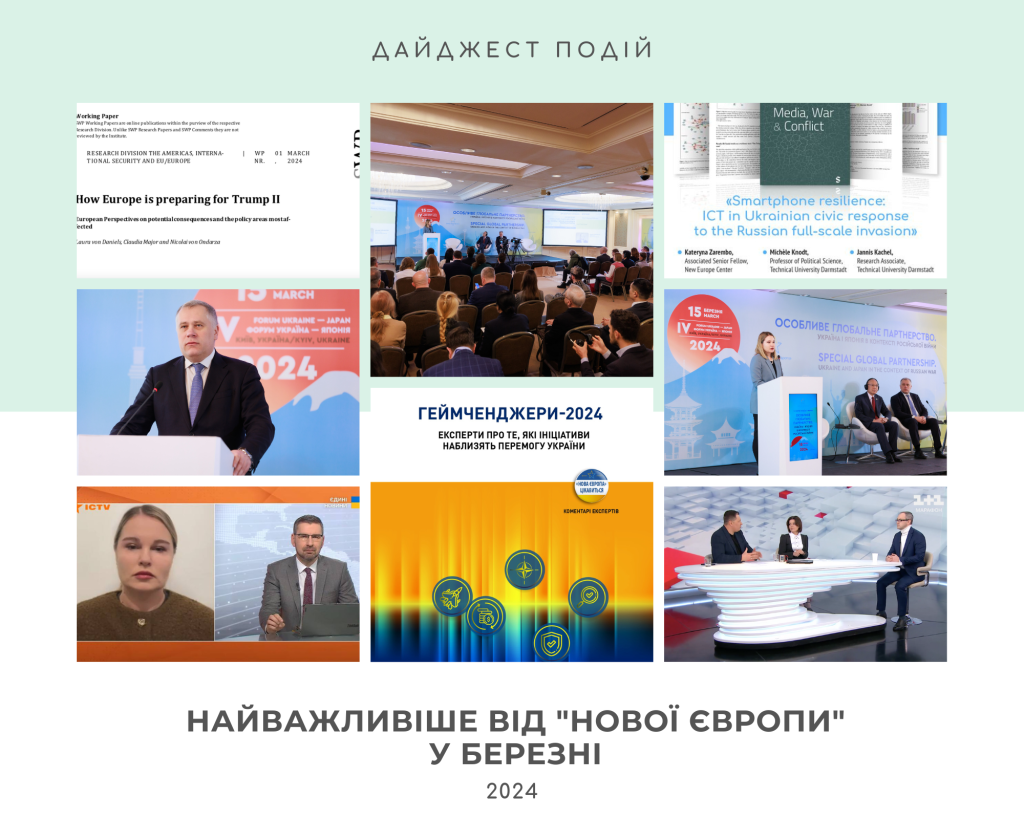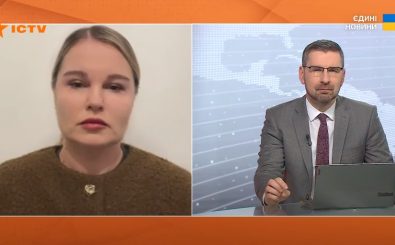On March 10, 2023, the New Europe Center together with IFRI – French Institute of International Relations held the second “Ukraine-France” Forum in Paris.
During the three thematic panels, government officials and independent experts discussed:
- military issues and scenarios for ending the war;
- reconstruction, reforms, and European perspective of Ukraine;
- resilience and transformation of Ukrainian society.
The keynote speeches were delivered by Olga Stefanishyna, Vice Prime Minister for European and Euro-Atlantic Integration of Ukraine, and Laurence Boon, France`s Secretary of State for European Affairs.
Among the speakers of the event:
Frédéric Mondoloni, Director of the Department for Continental Europe at the French Ministry of Europe and Foreign Affairs;
Benjamin Haddad, President of the France-Ukraine Friendship Group in the French National Assembly;
Yuriy Sak, Advisor to the Minister of Defense of Ukraine;
Yegor Chernev, Deputy Chairman of the Verkhovna Rada Committee on National Security, Defense and Intelligence, Head of the Permanent Delegation of Ukraine to the NATO PA;
Pierre Heilbronn, French Special Envoy for Reconstruction.
Key ideas of the Forum speakers:
- Татьяна Жан
- Альона Гетьманчук
Alyona Getmanchuk, Director of the New Europe Center:
No one in the world wants peace as much as Ukraine. Because our relatives and friends are dying, our acquaintances are losing their homes, our cities are being wiped off the map. However, sustainable peace – not another fragile ceasefire – is only possible if Ukraine wins. A Russian victory will only lead to more wars.
Tatiana Kastueva-Jean, Director of the Russia/Newly Independent States Center, Institut d’Etudes Internationales de France:
More than the Russian offensive, we were impressed by Ukraine’s resistance, which absolutely changed the situation, forcing the Russian forces to reduce their ambitions of what is called a “special operation” in Russia.
- Лоранс Бун
- Ольга Стефанішина
Olga Stefanishyna, Vice Prime Minister for European and Euro-Atlantic Integration of Ukraine:
France has fixed its position related to the end of the war, being among the top 5 countries providing military assistance to Ukraine. And these efforts should be maintained. I hope that France will be able to make serious decisions about Ukraine in the future, including the start of negotiations on its accession to the EU. This decision will prepare Ukraine for victory and its reconstruction. We hope that France will join the “peace summit” we plan to hold soon.
Laurence Boon, France`s Secretary of State for European Affairs:
What happened after Russia’s war of aggression against Ukraine led to the fact that the “rose-colored glasses” fell off the eyes of many Europeans. Before that, they used to say that the more commercial relations with a country, the more difficult it would be to wage war with it. Now we are witnessing these changes. We have to think about how we want to see European integration and how we want to see Ukraine in the EU.
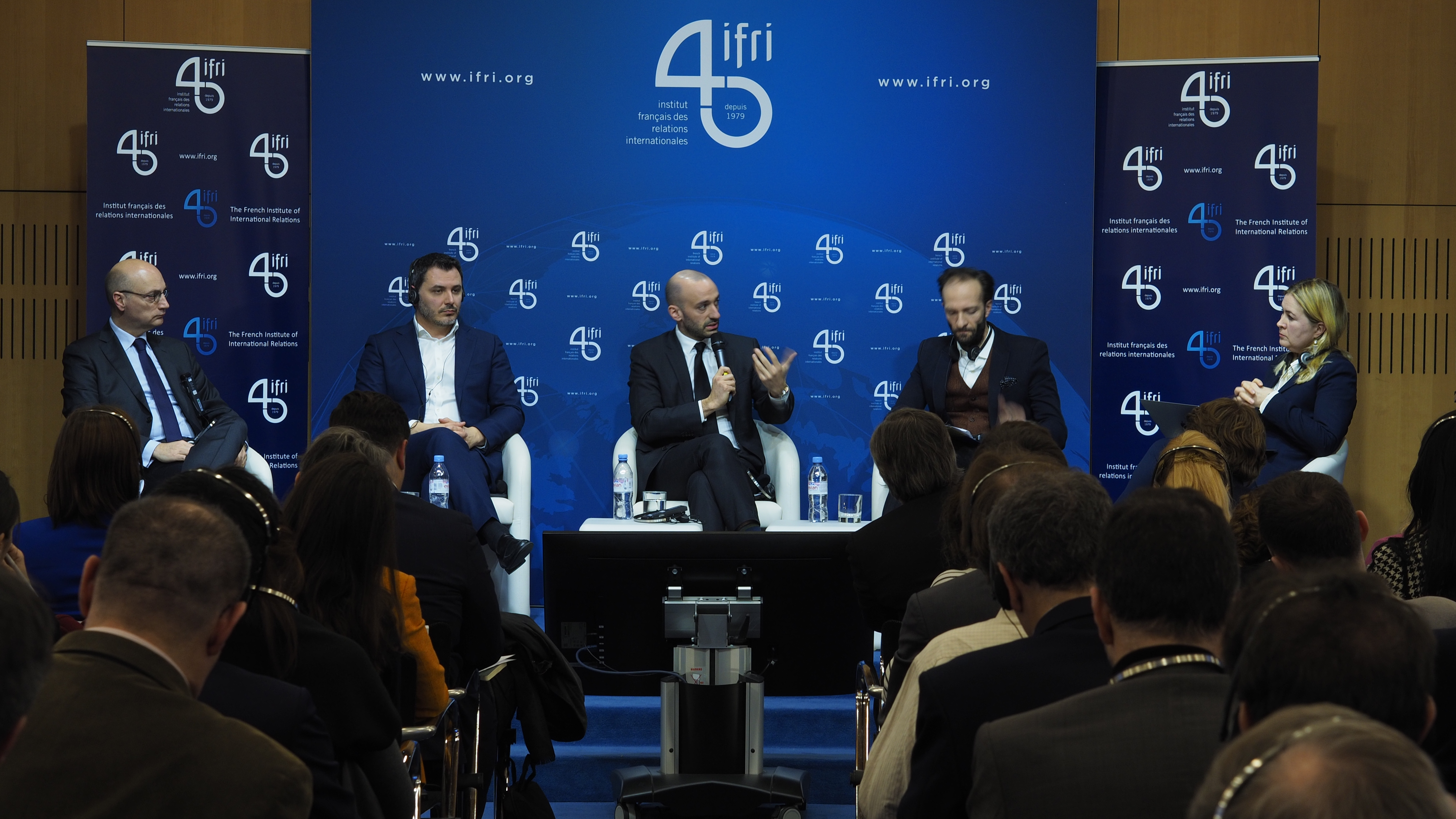
Panel 1: “Defense, security and ways out of war”
Frédéric Mondoloni, Director for Continental Europe at the French Ministry of Foreign Affairs:
Ukrainians show heroism that we can only be proud of.
Yehor Chernev, Deputy Chairman of the Verkhovna Rada Committee on National Security, Defense and Intelligence:
Over the past 30 years, European countries have been relaxing and reducing their armies. With their lives, Ukrainians bought Europeans a year to arm themselves.
Benjamin Haddad, President of the France-Ukraine Friendship Group of the French National Assembly:
We should already be thinking about how we can provide military support to Ukraine in the long term, even after the weapons are silent, because Russia will continue to exist and prepare for the next steps.
Yuriy Sak, Advisor to the Minister of Defense of Ukraine:
Russia is not a superpower or the second army of the world. It is a terrorist state that initially hoped to use fear tactics to break Ukrainians. When that failed, it used international blackmail to influence our partners. This also failed.
Pierre Araud, French researcher on European security:
One can reflect on what the relationship with Russia will be like in the future. However, many conflicts end with the disappearance of countries. We shouldn’t think that Russia will necessarily remain in existence. And if you could choose, it would be better not to have Russia.
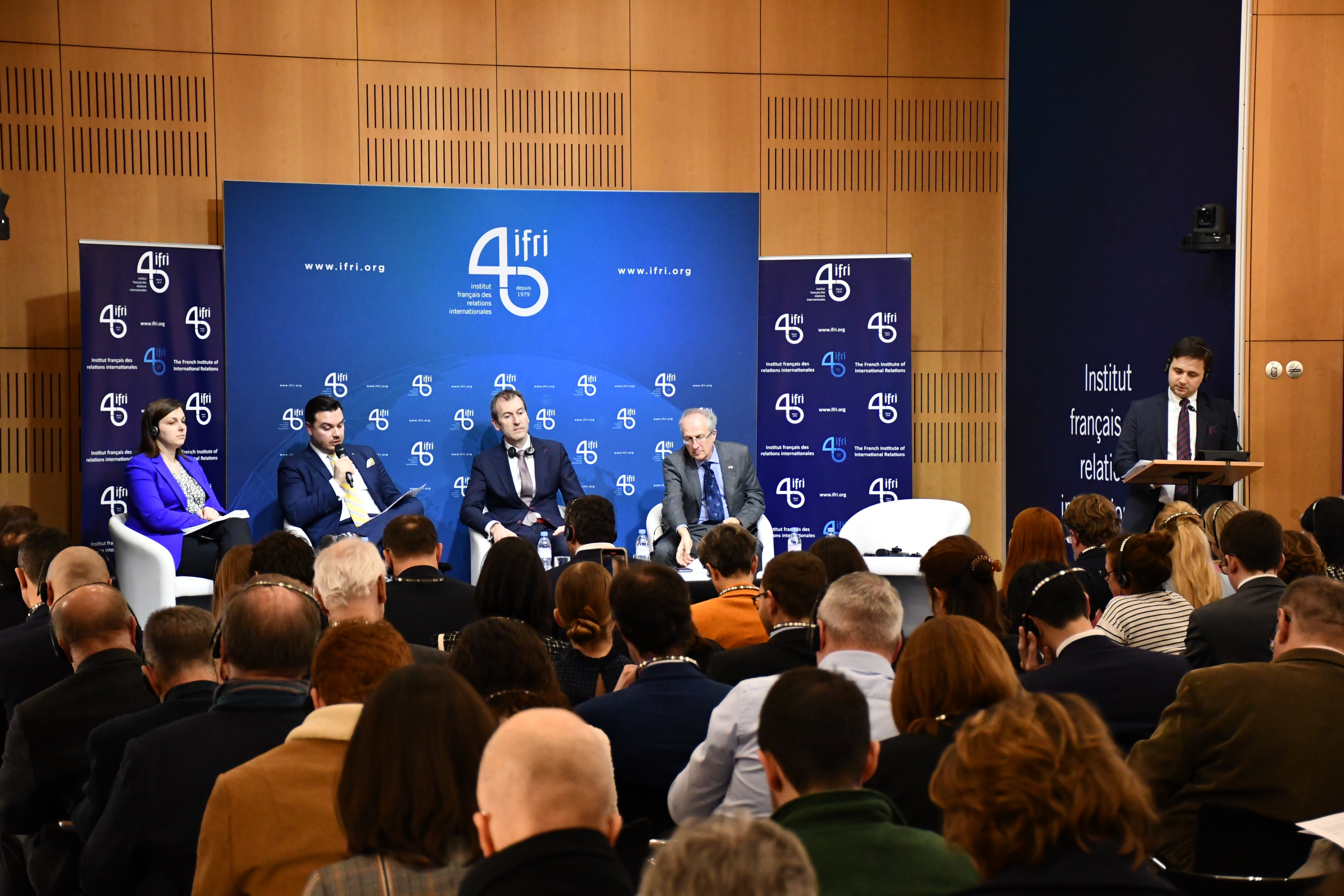
Panel 2: “Reconstruction, reforms and European prospects of Ukraine: through war to peace”
Pierre Heilbronn, Special Representative of the President of the French Republic for Reconstruction in Ukraine:
The reconstruction process should be directly linked to the integration of countries into the European space, to the coherence of various structures in the movement towards European integration. I think they should be parallel and connected in this regard.
Dmytro Natalukha, Chairman of the Committee on Economic Development of the Verkhovna Rada of Ukraine:
France is one of the countries that has supported us since the beginning of the war. However, today we can state that the principle of “first come first served” is being applied more and more often.
Bertrand Barier, member of the Paris Bar, President of the Board of the French-Ukrainian Chamber of Commerce and Industry, member of the European Business Association in Ukraine:
Since the beginning of the war, almost none of the French companies have left Ukraine. We have regrouped and become more resilient: today, French companies continue to fulfill their obligations to Ukrainian workers.
Olena Halushka, board member of the Anti-Corruption Action Center, co-founder of the International Center for Ukrainian Victory (ICUV):
The best tool and security guarantee for Ukraine’s reconstruction to take place at all is our victory. This should not be forgotten, because the check for reconstruction will depend on the level of destruction that Russia brings to Ukraine.
Dominique Menu, French member of the Supervisory Board, Chairman of the Risk Committee of Ukreximbank:
Corruption has been called the main enemy of Ukraine’s recovery. At the same time, recovery can mean implementing reforms and creating a more transparent, efficient and corruption-free Ukraine.
Leo Litra, Senior Research Fellow at the New Europe Center:
One of the mismatches between Ukraine’s and its partners’ ability to contribute to reconstruction is the fact that Ukraine wants certain reconstruction projects to be implemented despite the war, while many partners consider the end of the war a prerequisite for reconstruction.
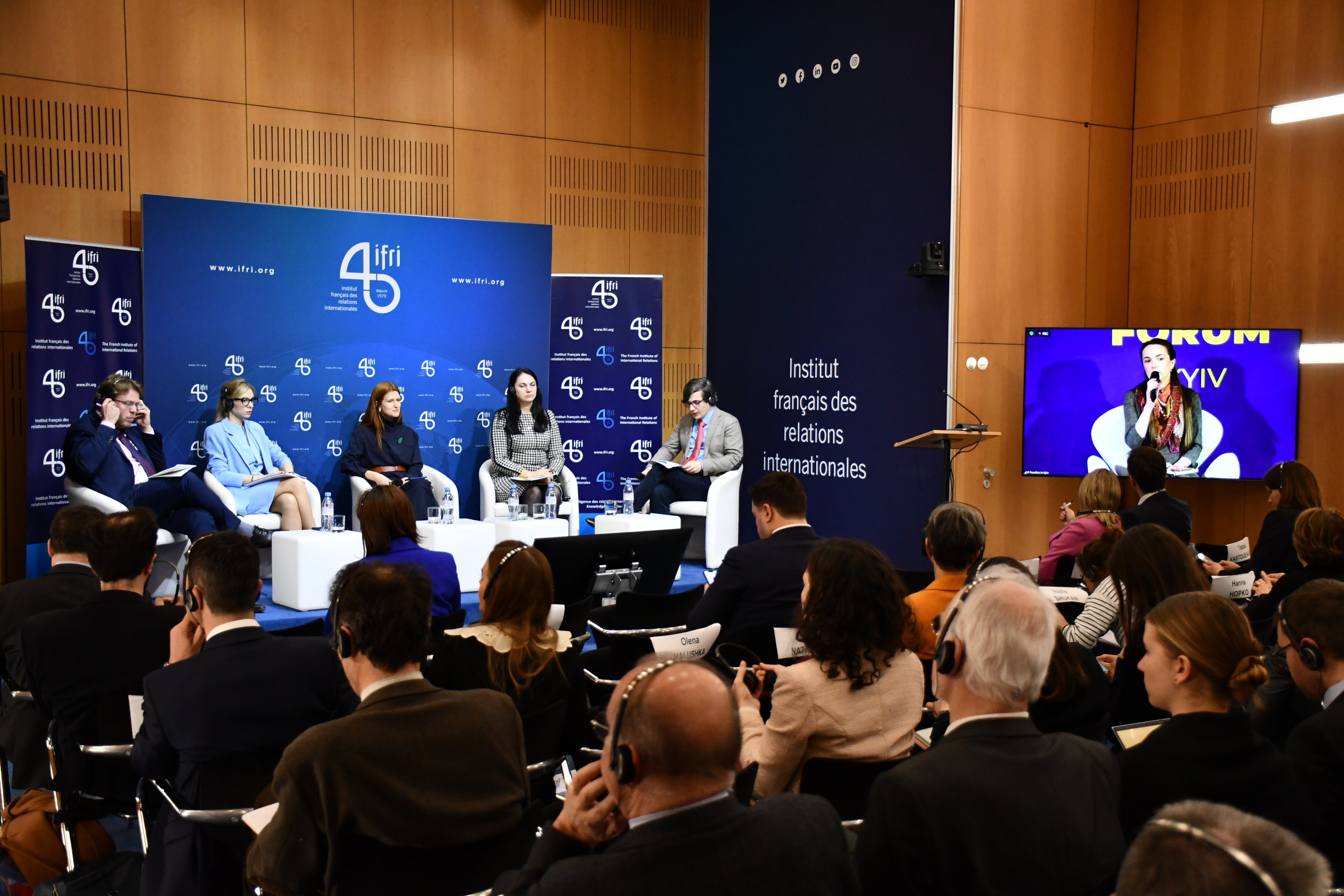
Panel 3: “Ukrainians at war: resilience and transformation of society”
Oleksandra Matviychuk, head of the Center for Civil Liberties, a 2022 Nobel Peace Prize winner:
During the year of full-scale war, the Tribunal for Putin initiative has documented more than 34 thousand war crimes. This hell is a direct consequence of the impunity he has enjoyed for decades. Violence and denial of human dignity have become part of the culture.
Manuel Lafont Rapnoy, Director of the Center for Analysis, Forecasting and Strategy (CAPS), French Ministry of Foreign Affairs:
We have the opportunity to learn from each other. Today, many NATO militaries can learn a lot from the Ukrainian military. When we talk and work on cybersecurity issues, we see that we can learn a lot from the Ukrainians. We should continue this dual cooperation.
Hanna Hopko, President of the All-Ukrainian NGO “ANTS Civil Network”, co-founder of the NGO “International Center for Ukrainian Victory” (ICUV):
The war will not end when Putin decides. Because Putin does not want peace, he is preparing to scale up the war and is forming his coalition. The war will end when Ukraine gets fighter jets. The end of the war does not depend on Putin, it depends on how much the West wants a Ukrainian victory. Let’s not underestimate the power of the West.
Yulia Shukan, Lecturer in Slavic Studies, University of Paris Nanterre, Researcher, Institute of Political Social Sciences (ISP/CNRS):
The vast majority of Ukrainians believe in victory. Ukrainians have proved to themselves and to us that they are able to withstand and that they are able to win in such a difficult situation.
Maria Zolkina, Head of the Department of Regional Security and Conflict Studies at the Democratic Initiatives Foundation (Ukraine), Research Fellow at the London School of Economics and Political Science:
There is a difference in the reintegration of the occupied territories. First of all, there is a difference between the territories that have been under occupation for 9 years and those that have been under occupation since spring. In the one case, people are adapting to the existing conditions, while in the other, they are just waiting for the restoration of the Ukrainian government.
The Ukraine-France Forum aims to increase understanding between Ukraine and France through an open dialogue between government representatives, independent experts and business representatives, to make the partnership between the two countries more predictable and sustainable, and to improve the perception of Ukraine in France. The first Ukraine-France Forum took place on the eve of Russia’s full-scale invasion of Ukraine on February 10, 2022.
The Forum was organized by the New Europe Center and the French Institute of International Relations (IFRI) with the support of the French Ministry of Europe and Foreign Affairs, the International Renaissance Foundation, and USAID, and in partnership with the Office of the Vice Prime Minister for European and Euro-Atlantic Integration of Ukraine.



